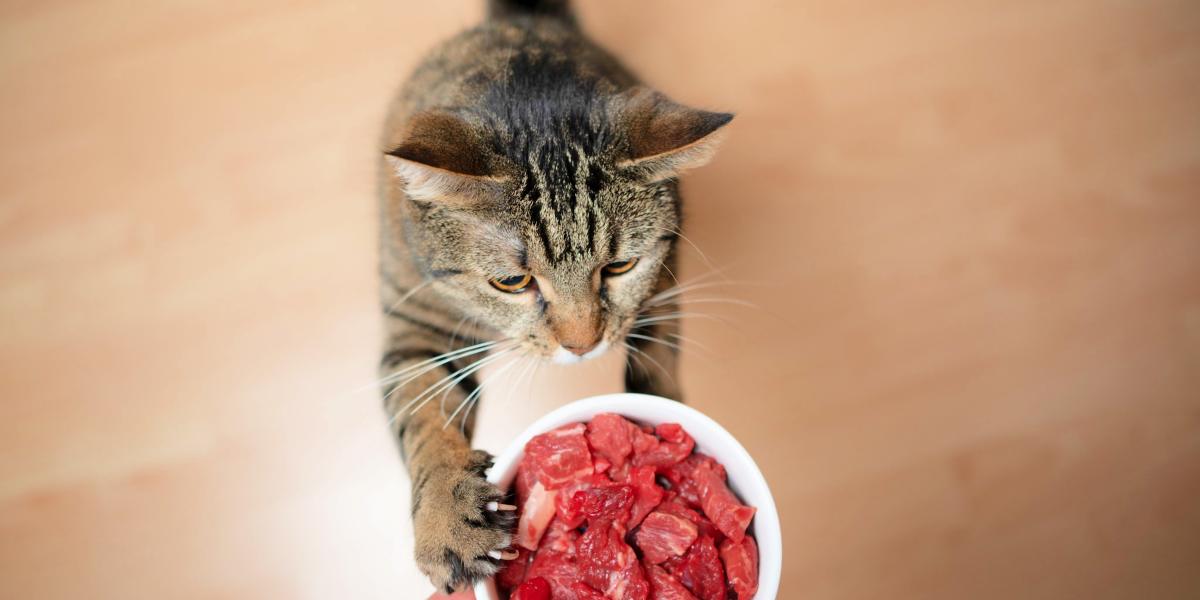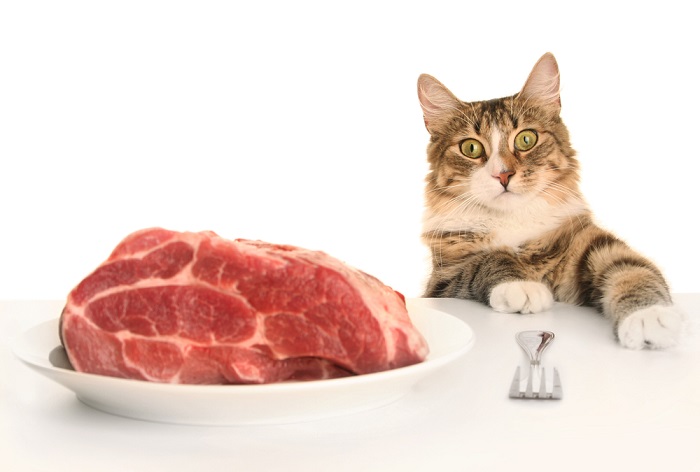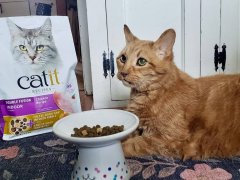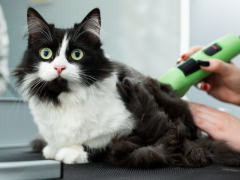
Being the parent of a pussycat comes with a lot of responsibilities! After all, you need to ensure they’re cared for properly with the correct vaccinations, flea and worm treatment, and the best cat food to keep them as healthy as possible.
But with so many options, how do you know that your cat’s diet is the best diet for them? What about raw food, for example? Is it safe to feed your cat raw meat? Might it even be good for them?
Well, the answer is that cats can eat raw meat, but there are a few risks to you and them which means it might not be a good idea. After all, domesticated cats are not the same as wild cats who hunt for food.
With proper preparation and supplementation, it is possible to feed cats a diet that includes raw meat, but it is important to be aware of the risks associated with bacterial contamination and nutrient imbalances.Quick Overview: Can Cats Eat Raw Meat





Summary of Content
Is Raw Meat Good for Cats?

There are health risks associated with handling raw meat and feeding it to your cat.
Firstly, it’s essential to understand that cats are obligate carnivores, so they need meat from animal sources to be healthy. Choosing lean meat to feed your cat will help avoid obesity-related health issues like arthritis, diabetes, and heart disease.
Since meat doesn’t contain any carbohydrates or sugar, this factor will also help keep your feline friend looking trim. A high protein content gives your cat the building blocks they need to grow and repair their tissues.
Minerals like calcium and phosphorus are great for keeping your cat’s teeth and bones healthy, while iron is required for their red blood cells to carry oxygen around their body. The vitamins contained within meat have many functions, including keeping your cat’s eyes, skin, fur, nervous system, and organs healthy.
The health benefits of meat for cats are not affected by the cooking process, so they’re not specific to raw meat. It’s often claimed that a raw food diet has additional benefits, including better skin, a glossier coat, better stool consistency, and less frequent defecation.
However, these changes are subjective and aren’t currently backed by evidence. Some suggest that a raw meat diet leads to healthier teeth, bones, joints, and a more robust immune system. However, these claims are currently not supported by research. As you read further, you’ll hear about some of the potential risks that might outweigh any benefits of a raw meat diet.
Also Read: Can Cats Eat Raw Chicken?
How Much Raw Meat Can a Cat Eat?
There are health risks associated with handling raw meat and feeding it to your cat. Parasites, bacteria, and other pathogens have the potential to make your cat unwell, as well as affect you or your family.
Considering the risks (which you’ll find out more about later in the article) and the fact that there are no scientifically proven benefits, it’s worth rethinking whether to feed your cat raw meat.
However, if you decide to, you should start by feeding a tiny amount to check whether it will upset your cat’s stomach. If they tolerate it with no vomiting or diarrhea, you can feed a little more next time..
Do Cats Like the Taste of Raw Meat?
There’s no conclusive evidence that cats prefer the taste of raw meat over commercial dry or wet cat food. Since cats enjoy both, it’s best to consider the risks before deciding which is the right choice for you and your furry family member.
How Often Can a Cat Eat Raw Meat?
Some pet owners choose to feed their cats exclusively on raw food diets. However, it’s not a good idea unless it’s a complete diet or from a recipe formulated by a veterinary nutritionist. This is because it’s very hard to get the balance of nutrients right for your cat. You could accidentally cause them a nutritional deficiency and make them unwell.
Is Raw Meat Used in Commercial Cat Food?
There are many commercial raw meat cat foods available. If you’re a cat owner and you think that raw food might be the right choice for you, your cat, and your other family members, make sure you research the best options.
Is Raw Meat Dangerous for Cats?
There are a few risks associated with feeding raw meat to your cats. Firstly, raw meat can contain bones, which can damage your cat’s teeth, cause internal damage or lead to a blockage within their guts.
Bones can also be a choking hazard, especially if your cat is without teeth. Of course, cooked bones are still a risk because they may be more likely to splinter. Therefore, feeding bones, in general, should be avoided.
Secondly, raw meat can contain many pathogens that can be harmful to both you and your cat. Bacteria like E Coli, salmonella, or campylobacter can be found on raw meat and are responsible for symptoms of food poisoning in people.
These bacteria could make your feline friend poorly, but they can also remain around your cat’s mouth and transfer to you when you kiss or stroke them. Parasites like worms and protozoa are also common in raw meat and can sometimes lead to illness.
Finally, although your cat needs to eat animal protein, they also need the right vitamins and minerals. Your cat’s nutritionally complete cat food contains all the nutrients they need to stay as healthy as possible.
By feeding them a homemade diet, you risk upsetting this balance of nutrition, leading to a deficiency. It’s especially important to meet the nutritional needs of a kitten because they are growing, so raw diets should only be fed to an adult cat.
Summary
Choosing the right pet food for your cat can feel like an overwhelming decision. After all, there’s so much choice out there regarding brands and formulations.
However, if you do some research and speak to your veterinarian, you’ll be able to make an informed choice that suits your cat and your family.
Frequently Asked Questions
Can house cats eat raw beef meat?
Cats can eat raw beef meat; however, it's not without risks. If you feed your cat raw beef, you risk making them unwell with parasites, bacteria, and other pathogens. What's more, some of these pathogens could also make you or your vulnerable family members sick.
Can I feed my cat raw meat from the grocery store?
You can feed your cat raw meat from the grocery store, but there are risks involved. As with handling any uncooked meat, you should thoroughly clean your hands, the food bowls, and any other contaminated surfaces after preparing the food. It's also best not to handle your cat soon after feeding and wash your hands after any contact with your cat to minimize the risks.
What raw foods can I feed my cat?
Raw food diets usually contain a mixture of raw meats, including muscle, organs, and ground bones. The raw meat can carry bacteria and parasites, though, and the bones can cause damage to the teeth, esophagus, stomach, or intestine.
Do cats prefer raw or cooked meat?
It's impossible to say whether cats prefer raw or cooked meat because we can't ask them! However, there's no conclusive evidence that they like one better than the other. Therefore, when considering the options, it’s probably best to choose cooked meat to avoid unnecessary risks.







